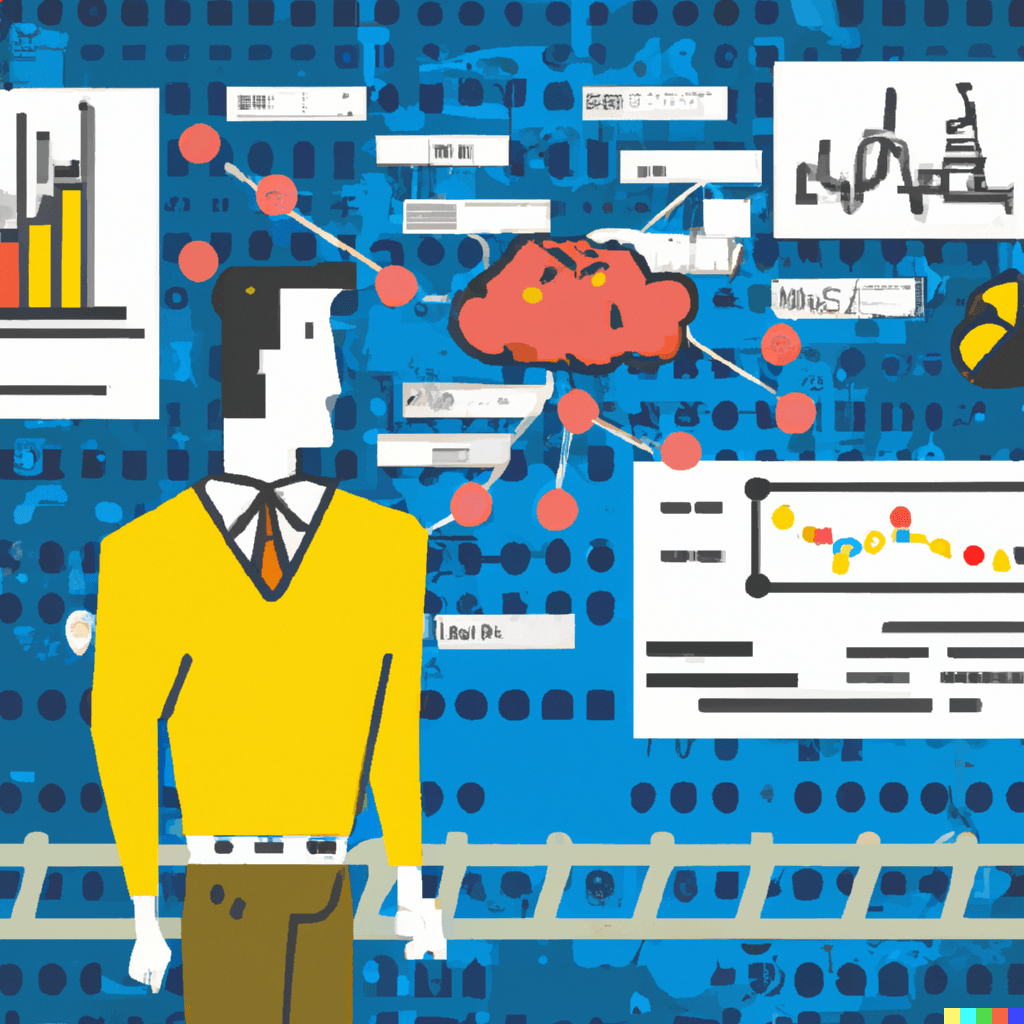Applied Data Science – Using data to understand and improve our society (16. desember 2022)
Applied Data Science (ADS) represents huge possibilities to solve many of our future problems. Problems such as worker shortage, healthcare optimization, urban mobility, and even climate change. So, what is ADS then?
ADS is an interdisciplinary field that combines knowledge and skills from computer science, mathematics, statistics, and other fields to analyze, interpret, and extract meaningful insights and solutions from information or large amounts of data. By leveraging powerful tools and algorithms, data scientists can uncover patterns, trends, correlations, and anomalies in data that can be used to inform decisions and develop predictive models. Additionally, advanced techniques such as machine learning and artificial intelligence can provide automated predictions, classifications, and recommendations for actions.
How can Applied Data Science be of use in a smart city?
Applied data science can be used in a smart city to enable more efficient processes. Processes such as intelligent traffic flow control, air pollution monitoring, and healthcare optimization. Additionally, it can enable personalized services for citizens such as real-time notifications about traffic jams and other urban issues.
ADS can help cities become smarter by enabling better decision making through data-driven insights. By collecting and analyzing large amounts of data from sensors, connected devices, users, and so on, it is possible to identify problems, trends, opportunities and solutions that can help optimize urban operations and services. This data can then be used to develop new strategies, products and services. Services tailored to the specific needs of citizens and businesses in a smart city. A familiar example: think of the route planner from Google maps which considers the shortest distance. It also consideres traffic information and sudden incidents or accidents to give you the best route from A to B.
A different example: ADS can help identify what services are popular among citizens and businesses in each city. ADS can also help city planners understand the needs of citizens and businesses better. Additionally, applied data science can enable predictive analytics. This can be used to forecast future trends or events and enable cities to plan for them accordingly. Trends and events like extreme weather, mobility needs, or service demands.
How can applied data science help humans in the future?
ADS can help by automating many of the processes that humans would normally have to perform manually. For example, data science can be used to create AI-assisted robots and software agents that can interact with humans, automate repetitive tasks and manage complex projects. Additionally, applied data science can also be used to identify anomalies that may occur in a system or environment and take preventative measures before any issues arise. Finally, ADS can help to optimize existing resources and create new ones, enabling humans to do more with less.
Some of the best aspects of applied data science include its ability to process large amounts of data quickly and accurately. Its capacity to identify patterns and trends in data. Its ability to make accurate predictions based on data. And its capability to create personalized solutions tailored to the specific needs of businesses and individuals. Today, Machine Learning (ML) is a powerful tool in data science. With ML, machines can do some specific tasks way faster and more accurately than humans. This is possible because of the way the algorithm utilizes all the data we provide to the machine. As an example, a Machine Learning system can identify possible cancer in radiographic images with higher consistency than a human. Additionally, data science can also be used to automate manual tasks and processes, allowing for faster and more efficient workflows.

This is what applied data science looks like to DALL·E, an AI driven image generator made possible by ADS. Credit: OpenAI.
We have researched and put Applied Data Science to use for decades
Institute for Energy Technology (IFE) has long been involved in applied data science. By examining data and measurements, knowledge has been built up through tools, research, and methods that work in real-life scenarios to solve various types of decision support problems. If you have a set of data and a problem to solve, and you want a recommendation, we can choose the right method, tools, and give you a recommendation. We will also provide you with our reasons for our choice.
IFE has been involved in ADS for decades. In 1998, things really took off for IFE when we began creating two specific tools for the industry. “Aladdin” is a neural model for event classification which was very early with using artificial neural networks to classify events in dynamic processes. Classification can for example be used to categorize products inspected by a camera into good/bad/etc. For autonomous vehicles, these categories can represent the lane markers and the middle of the road, and the algorithm will detect the vehicle’s position. Between the lines is good, closer to either of the lines is bad, crossing the line is critical, as an example.
The other tool is called Peano, which is a tool for real-time signal processing, validation and estimation. It checks if the signal/measurement is within expectations. The algorithm learns what to expect or what is normal and is able to alert the users if the signal/measurement deviates from the estimated normal level.
The future is data-driven
Smart cities of the future will be based on applied data science. Leaders of companies and governments all over the world will base their decisions on recommendations provided by ADS in one form or another. In our societies of tomorrow, ADS will be integrated in most, if not all, of the services we rely on every day. It will also be a key component in many of our focus areas. From transport to healthcare. At IFE, we can help you understand your data, and give you the answers you need when designing new services. Applied data science is one of our key capabilities. Talk to us before making your next big decision.